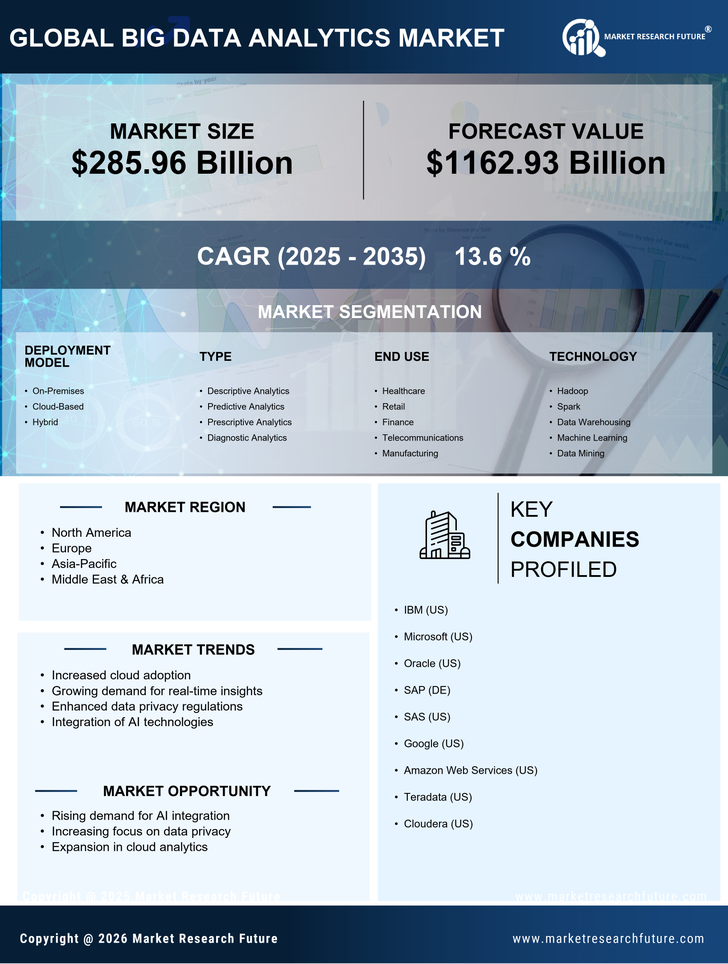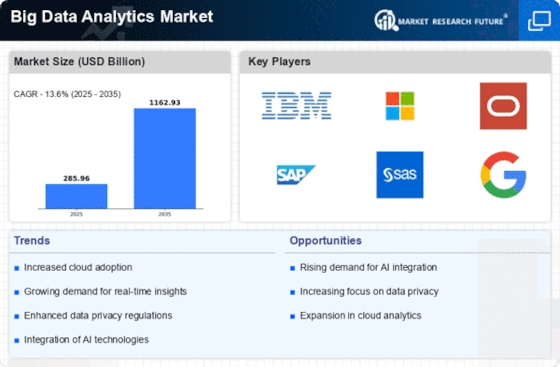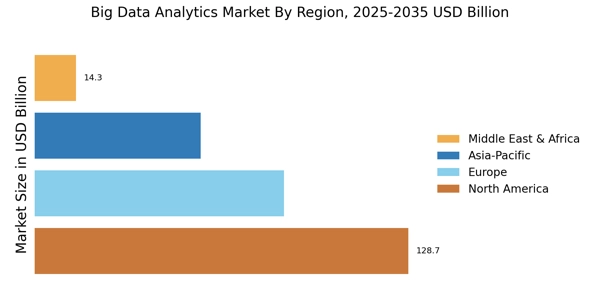Big Data Analytics Market Summary
As per Market Research Future analysis, the Big Data Analytics Market was estimated at 285.96 USD Billion in 2024. The Big Data Analytics industry is projected to grow from 324.86 USD Billion in 2025 to 1162.93 USD Billion by 2035, exhibiting a compound annual growth rate (CAGR) of 13.6% during the forecast period 2025 - 2035
Key Market Trends & Highlights
The Big Data Analytics Market is experiencing robust growth driven by technological advancements and increasing data utilization.
- The market is witnessing increased adoption of cloud solutions, particularly in North America, which remains the largest market.
- Integration of AI and machine learning technologies is becoming prevalent, enhancing analytics capabilities across various sectors.
- The Asia-Pacific region is emerging as the fastest-growing area, with a notable rise in hybrid analytics solutions.
- Rising demand for data-driven decision making and the expansion of IoT and connected devices are key drivers propelling market growth.
Market Size & Forecast
| 2024 Market Size | 285.96 (USD Billion) |
| 2035 Market Size | 1162.93 (USD Billion) |
| CAGR (2025 - 2035) | 13.6% |


















